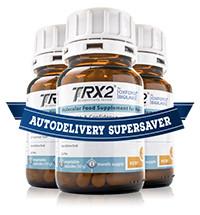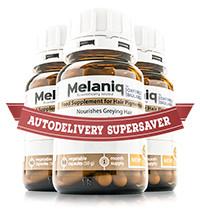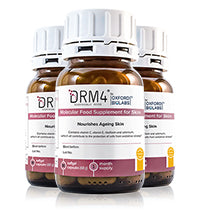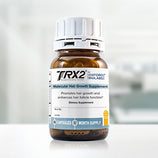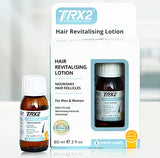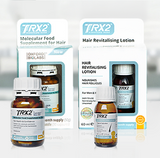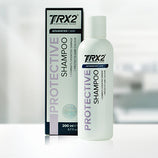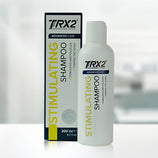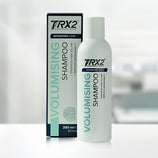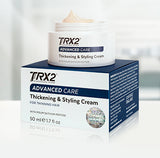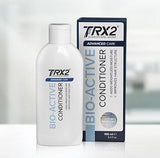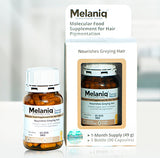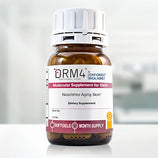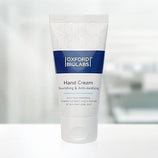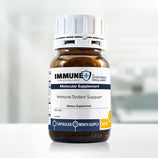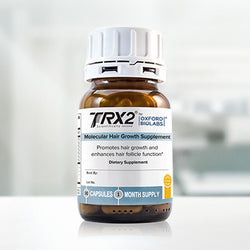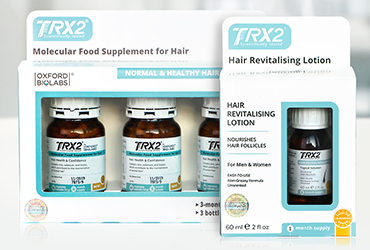Can Vitamin Deficiency Cause Skin Problems?
On the latest fad diet? Research has shown that popular diets are prone to causing vitamin and mineral deficiencies. It is correct that those looking to lose weight may be doing damage to their bodies, especially their skin. Vitamin deficiencies are also worsened by excessive physical and emotional stress, which is clear by the amount of undiagnosed deficiencies that are written off as bad mood, bad diet, or bad lifestyle in general.
Skin is like a mirror of our internal organs. When something starts going wrong on the inside, it shows up on the surface as breakouts, oily, and dry skin. But in the overall perspective, lack of vitamins and minerals is detrimental to the body as a whole and manifests in different ways. In this review, the focus will be vitamin deficiencies that most often cause skin problems.
The Top 5 Vitamin deficiencies that often cause skin problems
Ingesting or taking enough vitamins is not always enough to prevent consequences like skin disorders. Depleted vitamin levels may also be caused by malabsorption (improper absorption) in the gastrointestinal tract, or other medical conditions that do not allow the proper metabolism of nutrients. So, if a person suffering from skin breakouts and dry skin consistently ignores their diet, they may fall victim to a plethora of not only skin problems, but the general deterioration of health.
Skin Symptoms of Vitamin A Deficiency

Vitamin A is a group of compounds which includes retinol, retinal, retinoic acid, and others. Vitamin A, as retinal, plays a key role in vision. This knowledge dates back nearly 3000 years to ancient Egypt, where night blindness was treated with animal liver. It is now well known that liver, dairy products (cheese, milk, butter), eggs, and cod liver oil contain high concentrations of Vitamin A.
- Fun Fact: Polar bear liver contains toxic levels of Vitamin A for humans.
This essential vitamin also aids bone and tooth development, reproduction, and supports the health and properties of skin and mucous membranes (the layer that lines areas such as the inside of the mouth and nose).
While rarely occurring in developed countries, lack of Vitamin A is relatively common in developing regions. Approximately a quarter to a half a million children go blind each year from something that can be easily corrected. The first symptom of low Vitamin A is night blindness, which is caused by a very dry and damaged cornea and retina.
To fully understand Vitamin A’s role in skin health and ageing, one can simply look up the symptoms of Vitamin A deficiency. They are xerosis (abnormally dry skin), and follicular hyperkeratosis (appearance of reddish brown bumps near the hair follicle root). Once the skin drys out, just like dry sand on the beach, cracks start to form. This eventually leads to wrinkles and scaly skin, and can manifest as skin cracking on fingers, and dry, red spots on skin which form on the elbows and knees.
Skin Symptoms of B Vitamin Deficiencies

The B vitamin family can only properly function if all B vitamins are in the right balance. Because they are synergistic to each other, low levels of one vitamin may cause a cascading reaction, impairing other important bodily processes.
Vitamin B3
Vitamin B3, commonly called Niacin, is involved in various physiological processes, and is recent research has found that its anti-inflammatory effects on various tissues and organs, including the brain (neuroinflammation) may be extremely effective. Studies have also highlighted its possible use for treating neurological disorders like multiple sclerosis and Parkinson’s disease.
During the early 20th century, more than 3 million Americans experienced symptoms of what we now know as Pellagra, the name given to Niacin deficiency. Early symptoms include fatigue, lethargy, mood swings, and loss of appetite.
A Niacin deficiency may result in the following skin problems:
- Dry, itchy skin
- Peeling skin
- Patchy skin
- Skin rash
- Symmetric lesions that show up on sun-exposed areas of skin
Vitamin B6
The Vitamin B6 group of compounds is vital for many metabolic functions, namely, lipid, glucose, and amino acid metabolism. While uncommon in the past half century, deficiencies still occur. Most often, those who abuse alcohol, and the elderly experience symptoms of B6 deficiency due to the inactivation or lack of B6 in their respective diets.
The classic skin signs of low levels of B6 are:
- Seborrheic dermatitis (red, oily, itchy, inflamed skin)
- Inflammation and ulcers of the tongue
- Angular cheilitis (scaly, cracked skin on the lips and corners of the mouth)
Vitamin B12
Vitamin B12 is mainly involved in regulating the normal functioning of the nervous system. It also plays a part in DNA synthesis, amino acid and lipid metabolism, and the formation of red blood cells.
The body does not make its own Vitamin B12, and it is rarely found in plant sources, so vegetarians (or vegans) need to be very careful to keep their concentration of B12 at the optimal level. Additionally, anemia is a common sign of B12 deficiency because it’s needed to make red blood cells.
If one doesn’t get enough Vitamin B12, skin may become:
- Dry and itchy
- Scaly
- Patchy
Skin Symptoms of Vitamin C Deficiency
Vitamin C, or ascorbic acid, is crucial for collagen synthesis, regulating how much collagen is formed. It’s also a powerful antioxidant that supports the immune system.
The symptoms of Vitamin C deficiency can be summarised by the well-known disease that scourged pirates and sailors - scurvy. Scurvy, or severe malnutrition, resulting from a lack of fresh fruits and vegetables may result in general weakness, anemia, gum disease, bone and joint pain, and shortness of breath. Although this sounds like something from a horror movie, or for some, resembles a very severe systemic illness, the world has almost wiped out vitamin C deficiency in developed countries, although milder deficiencies are still a clear and present danger.
Skin symptoms of a lack of Vitamin C include:
- Rough, dry skin
- Easy bruising
- Follicular hyperkeratosis (like in Vitamin A deficiency)
- Thin skin
- Skin haemorrhaging (in rare cases)
Apart from these problems, low levels of Vitamin C result in poor wound healing. As written above, this vitamin controls and stimulates the production of collagen, which is found in hair, skin, nails, and importantly, blood vessels. Through a compromised skin barrier, the body is also more prone to secondary infections.
Conclusion
Radical dieting, ignorance, or simply lack of food availability more often than not are to blame for nutritional deficiencies in the 21st century. Unfortunately, urbanisation has given way to other factors like air pollution and toxins, which rob the skin of its natural barrier properties, making it more likely that skin ageing happens earlier in life. A balanced diet of essential vitamins and minerals (plus a good food supplement) is all you need to have beautiful, glowing skin!
